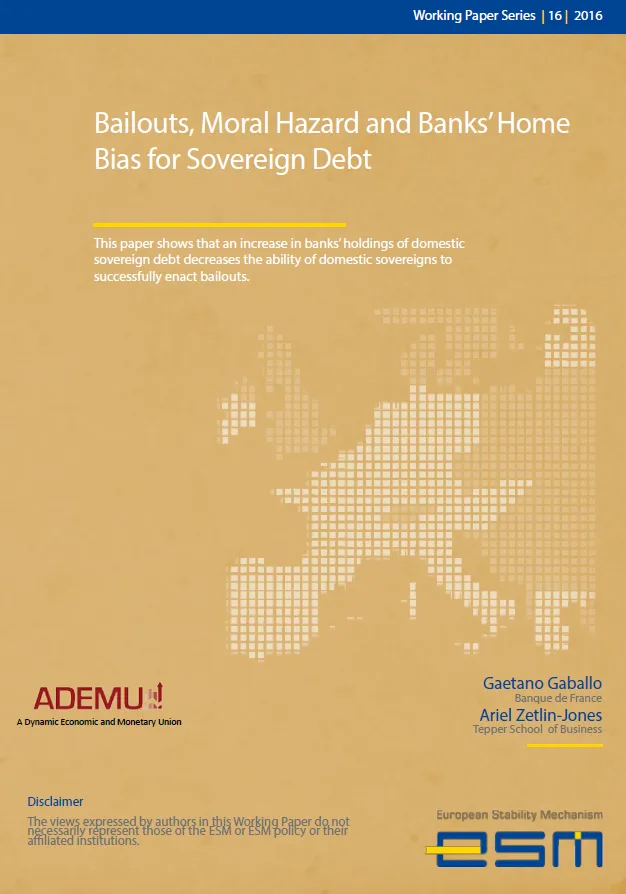Bailouts, Moral Hazard and Banks’ Home Bias for Sovereign Debt

Download PDF: Working Paper 16
This paper shows that an increase in banks’ holdings of domestic sovereign debt decreases the ability of domestic sovereigns to successfully enact bailouts.
Authors: Gaetano Gaballo | Banque de France
Ariel Zetlin-Jones | Tepper School of Business
Paper presented at ADEMU (A Dynamic Economic and Monetary Union) conference co-organised by the ESM in May 2016
Abstract:
This paper shows that an increase in banks’ holdings of domestic sovereign debt decreases the ability of domestic sovereigns to successfully enact bailouts. When sovereigns finance bailouts with newly issued debt and the price of sovereign debt is sensitive to unanticipated debt issues, then bailouts dilute the value of banks’ sovereign debt holdings rendering bailouts less effective. We explore this feedback mechanism in a model of financial intermediation in which banks are subject to managerial moral hazard and ex ante optimality requires lenders to commit to ex post inefficient bank liquidations. A benevolent sovereign may desire to enact bailouts to prevent such liquidations thereby neutralizing lenders’ commitment. In this context, home bias for sovereign debt may arise as a mechanism to deter bailouts and restore lenders’ commitment.
Disclaimer: This Working Paper should not be reported as representing the views of the ESM. The views expressed in this Working Paper are those of the author(s) and do not necessarily represent those of the ESM or ESM policy. No responsibility or liability is accepted by the ESM in relation to the accuracy or completeness of the information, including any data sets, presented in this Working Paper.
JEL codes: E0, E44, E6, E61